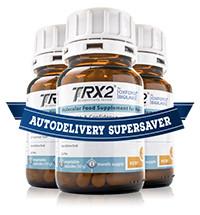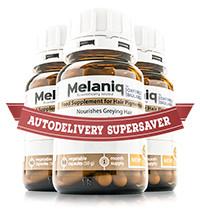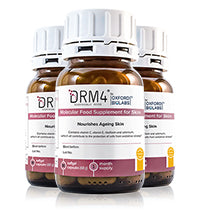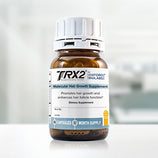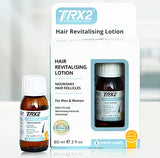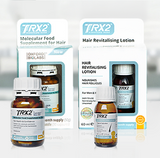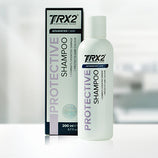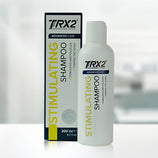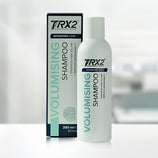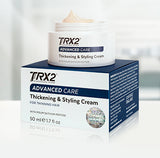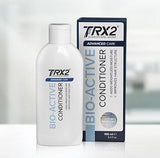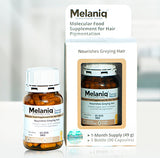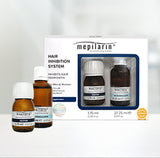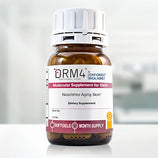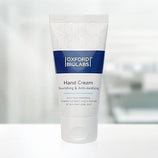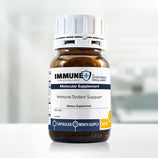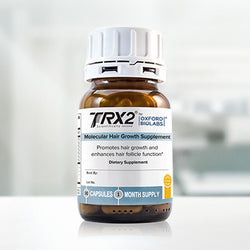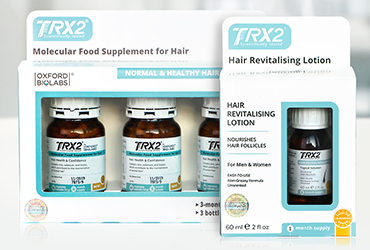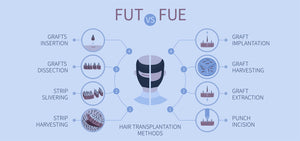What you need to know about hair after having a baby
Childbirth causes extreme physical and emotional stresses that an literally “shock” the body. This shock can create an imbalance in the natural human hair cycle, which can make hair fall out excessively and prematurely. The normal hair cycle involves three stages of growth (anagen, catagen, telogen). In postpartum hair loss, more hairs enter the telogen (resting) stage and consequently, women see more hair on pillows and in shower drains. Hair shedding can occur within a few weeks after childbirth, but generally starts 1-1.5 months after giving birth. Luckily, just as the body recovers, hair also bounces back after some time.
What happens to hair after pregnancy?
Hormones are the biggest reason for hair changes during pregnancy and postpartum hair loss. During pregnancy, high levels of oestrogen prevented the usual rate of hair loss. Normally, hair falls out in small amounts (50-100) every day.
After the baby arrives and hormone levels drop, hair starts to fall out increasingly over a period of up to six months. Hair shedding after pregnancy is a natural process that has several causes and will definitely not result in permanent baldness. By some accounts, a woman can lose up to 40% of her hair due to postpartum hair loss, but to reiterate, this does not imply that special medical treatment is required.
What causes hair loss after pregnancy?
This particular type of telogen effluvium (telogen hair loss) is not yet well understood, but general logical inferences can be made in regard to knowledge in the medical literature.
The top 3 causes of postpartum hair loss are:
- Hormonal changes
Oestrogen levels drop significantly immediately following childbirth. This manifests as poor skin condition, hair fall, and decreased sex drive. The reduction in female sex hormones is something that every woman should know about
- Lack of nutrients
The physical labour of childbirth requires a massive amount of vitamins and minerals. A lack of nutrients after pregnancy is a recipe for hair disaster (not to mention dangerous if breastfeeding). Additionally, is the baby was delivered via C-section or there was a massive amount of blood lost during natural birth, there could be a shortage of nutrients in the bloodstream. Minerals like zinc and iron could also be to blame if a woman develops anaemia after childbirth.
- Stress and sleep deprivation
Babies can’t talk and the only way that bundle of joy can communicate is through crying. Sleep deprivation can make hair loss worse, especially in combination with poor eating habits and the natural lack of hormones.
How to prevent postpartum hair loss
1) Healthy eating
During pregnancy, women often are told they have to “eat for two”. Of course, everything should be eaten in moderation, and portions should not be doubled. A balanced, varied diet and the addition of prenatal supplements will ensure a healthy baby and healthy mummy. Including a variety of vitamins, minerals, and healthy proteins and fats in one’s diet is the best way to make sure your body is getting all the nutrients it needs.
2) Go easy on hair styling and beauty products
Using hair dryers and hot styling irons can make hair look even thinner. Postpartum hair loss is temporary, so it's a matter of patience. Hold off until after hair recovers before using such products. A wide tooth comb or brush is perfect for thinning hair, as it doesn't cause any damage or rip hairs out.
3) Use natural volumising shampoos and conditioners
Volumising products are perfect to make hair look and feel healthier and more voluminous. They pump hair full of nutrients, even out the moisture balance, and energise hair with various ingredients like caffeine. The combination of a natural styling cream and shampoo guarantees results. Conditioners are questionable because they often weigh hair down, making it look flat and dull. Natural conditioners are the best way to go.
4) Continue taking supplements
As written above, there’s no substitute for a varied, balanced diet, especially after childbirth. However, a quality supplement is a good idea, especially for breastfeeding mothers. Prenatal vitamins taken before and during pregnancy can be continued, or a general multivitamin can be taken.
5) Be patient
Trichologists are prone to scaring new mothers with cosmetic procedures and supplements that cost a fortune. For the majority of women, hair recovers quite well after 6 months. There’s no need to run out and make appointments, it’s a matter of waiting patiently for the hair cycle to renew itself after the stresses of childbirth.
Conclusion
There are enough worries associated with pregnancy and childbirth. Hair loss by itself can be psychologically difficult to handle, let alone hair loss after such a physically and emotionally tumultuous period before, during, and after pregnancy. Postpartum hair loss is fairly common, so there is nothing to worry about in general. The only time that there could be serious cause for concern is if the hair fall is severe, or is accompanied by other symptoms, it would be wise to visit a healthcare professional. Your baby is the most important thing in the world, and obviously everything else comes second, but a few simple tricks can help save time and heartache.
